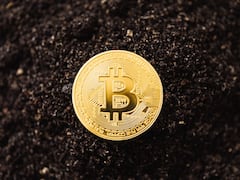Insurtech, Governance, More: 10 Promising DeFi Use Cases
A variety of potential use cases for DeFi could revolutionize how financial services are provided and consumed.

Decentralized finance (DeFi) has garnered significant attention in recent years, especially for its potential to disrupt traditional financial systems by providing greater access to financial services for a broader range of individuals. DeFi represents an exciting development in the blockchain and cryptocurrency space and can potentially impact the fintech industry significantly. A variety of potential use cases for DeFi could revolutionize how financial services are provided and consumed.
Here are 10 DeFi use cases that hold promise:
Borrowing and lending
The most widely used application of DeFi is peer-to-peer borrowing and lending. In traditional finance, borrowers go through a bank and complete a loan application.
In contrast, DeFi allows borrowers to secure loans through smart contracts eliminating the need for intermediaries, thus simplifying and speeding up the process. A prime example of a DeFi lending platform is Aave which enables the lending and borrowing of digital assets in a decentralized way.
Smart contracts automatically implement the loan terms, manage repayments and provide transparency by tracking interest rates and debt amounts.
Insurtech
DeFi is still relatively new, so there may be potential risks such as bugs in smart contracts or security breaches. Innovative insurance solutions have emerged to address these issues and protect user funds. These solutions eliminate the need for extensive paperwork, outdated audits, and other tedious processes.
An example of such a solution is Nexus Mutual, a DeFi insurtech platform that allows users to pool their assets to provide coverage for smart contract risks, such as bugs or other issues that may cause a loss of funds.
Asset management
DeFi is a new financial system that aims to provide more control and freedom to the users over their assets than traditional finance. It is achieved using blockchain technology, smart contracts, and decentralized infrastructure to provide users with a wide range of financial tools.
These tools include buying, selling, and transferring assets. DeFi projects also provide robo-advisory services that automate portfolio management using predefined rules and strategies. This means that users can manage their assets more efficiently and automatedly and make better investment decisions based on the information provided by the DeFi project.
Stablecoins
Stablecoins are digital assets pegged to the value of a real-world asset, such as the US dollar, to minimize volatility. They can be used for trading, lending, and borrowing in the DeFi ecosystem.
Tokenization
It creates digital representations of real-world assets, such as property, art, and collectibles. It allows assets to be represented on blockchain platforms and creates digital securities that can be traded on those platforms.
An example is real estate tokenization through Polymath, a blockchain network that creates digital representations of real-world assets.
Governance
Many DeFi projects are built on decentralized platforms like Ethereum, and the users of these platforms are often given the ability to vote on important decisions. This can include changes to the project's code or the allocation of funds from a project's treasury.
An example of a project with decentralized governance is MakerDAO, which is a decentralized platform for creating and managing stablecoins. The users of the MakerDAO platform can vote on important decisions, such as changing the stability fee (interest rate) for borrowing DAI stablecoin or modifying the platform's codebase.
Predictive markets
Predictive markets on DeFi platforms allow users to bet on the outcome of events, such as elections or sports games, in a decentralized manner. Augur is an example of a decentralized prediction market platform where users can create markets and place bets on any event. It utilizes a reputation token system to incentivize honest reporting on event outcomes.
Decentralized identity
This refers to using blockchain technology to give users control over their data and enable a new layer of transparency and security for online interactions. An example of a decentralized identity is uPort, a project by ConsenSys, which allows users to create a self-sovereign identity on the Ethereum blockchain.
Users can then use this identity to interact with decentralized applications and services while maintaining control over their data.
Decentralized marketplaces
These are online platforms that allow users to buy and sell goods and services in a decentralized manner. They can be built on blockchain technology and may also use smart contracts to enforce the terms of transactions automatically.
An example of a decentralized marketplace is OpenBazaar, which allows users to buy and sell goods and services in a decentralized manner. It is built on a peer-to-peer network and provides for direct trade. It also allows sellers to create a custom smart contract to enable new types of sales.
Decentralized crowdfunding: These are platforms that use smart contracts and blockchain technology to raise funds from a large number of people. This approach aims to provide an alternative to traditional fundraising methods, which can be restrictive, expensive, and time-consuming.
Platforms like KickICO use smart contracts and blockchain technology to raise funds from many people and institutions.
(The author is the CEO and co-founder of Mudrex, a global crypto investing company.)
Disclaimer: The opinions, beliefs, and views expressed by the various authors and forum participants on this website are personal and do not reflect the opinions, beliefs, and views of ABP News Network Pvt Ltd. Crypto products and NFTs are unregulated and can be highly risky. There may be no regulatory recourse for any loss from such transactions. Cryptocurrency is not a legal tender and is subject to market risks. Readers are advised to seek expert advice and read offer document(s) along with related important literature on the subject carefully before making any kind of investment whatsoever. Cryptocurrency market predictions are speculative and any investment made shall be at the sole cost and risk of the readers.
Related Video
Breaking News: India Budget 2026-27 Sparks Market Volatility, Long-Term Reforms Highlighted







































